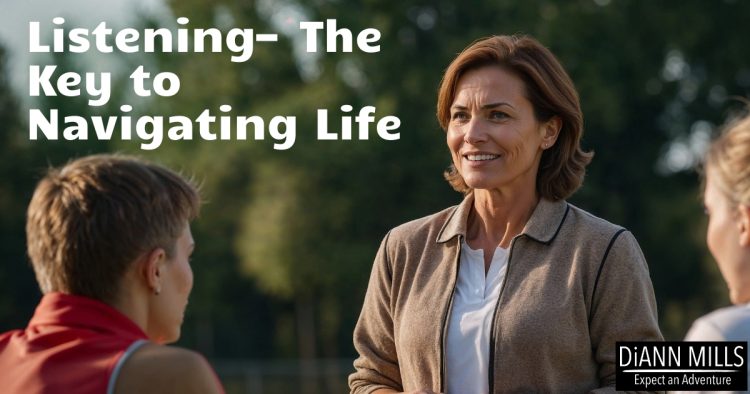By DiAnn Mills @DiAnnMills
We’ve grown up hearing instructions to “listen,” and wisdom is woven into the word. As children, we were told to listen to our parents and others who were 1) wiser, 2) chose to protect us, and 3) had more life experience. As teens and adults, sage advice is always to listen.
Learning and listening are companions, joined by love for others and a benefit for ourselves.
The art of listening is not simply a learning tool but a means to navigate life. The storms that threaten our perspective on life can overwhelm us, yet listening to what is happening around us helps us make insightful decisions.
It’s been said that some of us look as though we’re listening to someone speak when we are only waiting for them to finish so we can give our opinion.
“It is hard to engage in listening to another person with empathy if you are waiting for the spotlight to shine back on you.” Ramani Durvasula
The advantages of developing our listening skills:
- A better understanding of why others have chosen their behavior.
- A better understanding of what influences the way others believe.
- A better understanding of underlying emotions and prejudices that accompany actions.
- A better understanding of what inspires others.
- A better understanding of what determines a leader’s opinions.
- A better understanding of clarity.
- A better understanding of why relationships succeed or fail.
- A better understanding of why respect is vital in all relationships.
- A better understanding of ourselves.
“One of the benchmarks of great communicators is their ability to listen not just to what’s being said, but to what’s not being said as well. They listen between the lines.” Laurie Buchanan
How do we enrich our listening skills?
- Concentrate on every word a person says, how it’s said, and their body language.
- Learn how a person receives and interprets information.
- Ask questions for clarification.
- Discover unique phrases and body language that apply to a person’s communication.
- Study the person’s culture, education, career, and often family life.
- Show empathy and sincerity.
- Refuse to slow down the speaker.
- Push away distractions.
- Refrain from using open-ended language.
- Process what was said later to improve our skills.
How do you truly listen to others?


